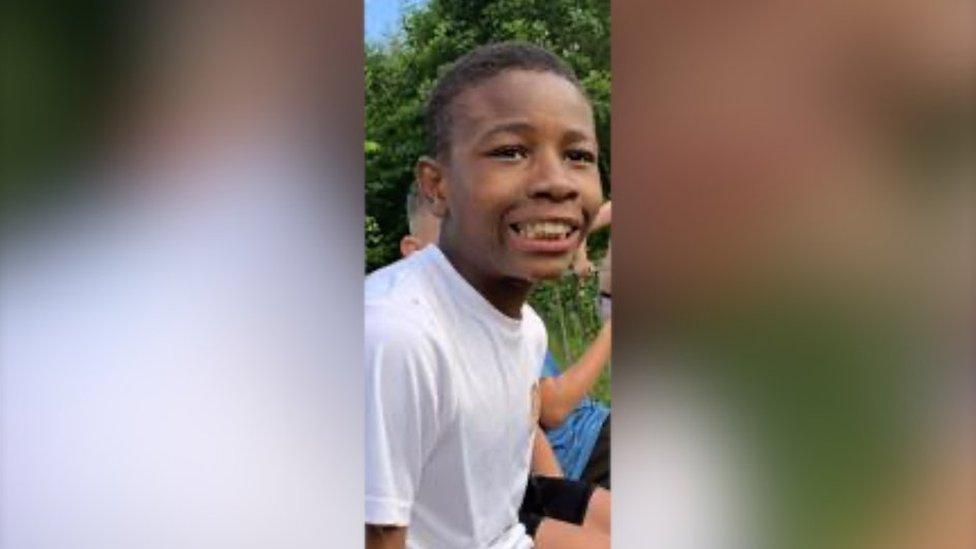Black Lives Matter manifesto urges police changes
- Published
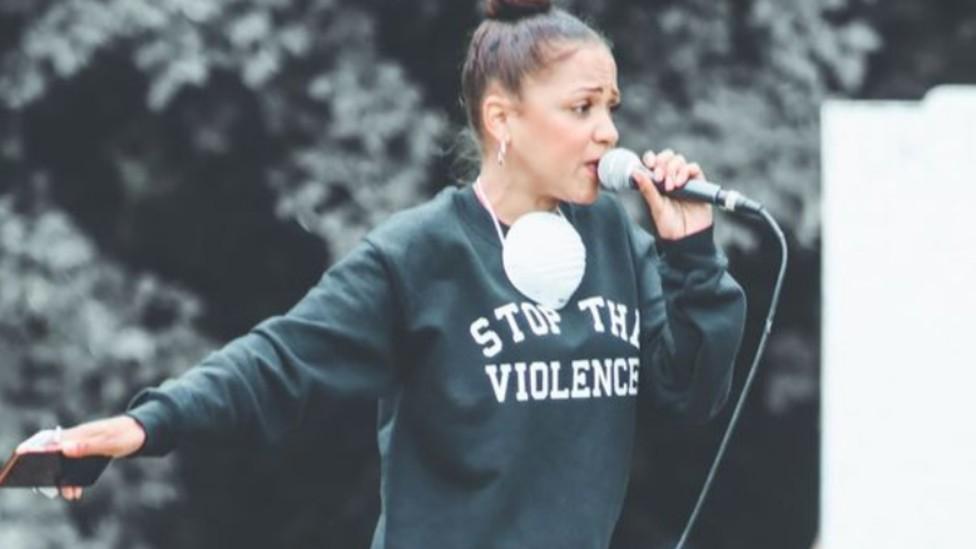
Bianca Ali has become a Black Lives Matter activist
Not enough has been done over the past 10 years by police in Wales to improve representation and change for black communities, an activist has said.
Some Black Lives Matter groups have published a manifesto, external calling for changes including tackling "systemic racism in Welsh police forces".
Bianca Ali said statistics from the past decade made her feel there had been no change in policing tactics.
The Welsh Government said it would invite leaders to discuss proposals.
One Welsh police and crime commissioner said more BAME officers were being employed in his force area but there was "more to be done" over representation and diversity awareness.
The eight-point manifesto covers cultural integration, heritage, a BAME citizens' assembly, education, policing and prisons, public servant training, funding for grassroot BAME organisations and government reviews.
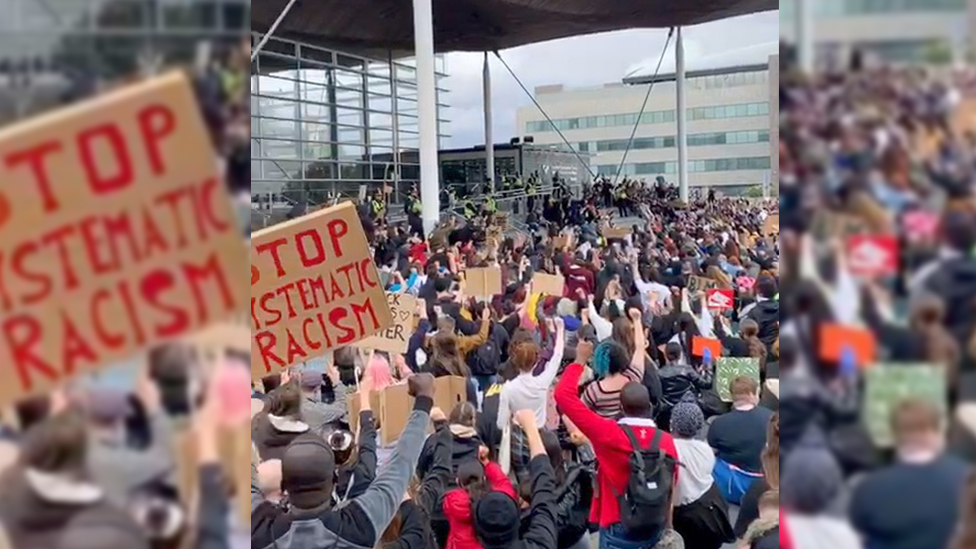
Campaigners in Cardiff marched from Bute Park to the Senedd as part of the Black Lives Matter protest
Black people are six-and-a-half times more likely to be stopped and searched by police in Wales than white people, according to UK government figure.
They are also four-and-a-half times more likely to be arrested.
Ms Ali, 28, who is of mixed Jamaican, Italian, Maltese, Arab, Bangladeshi and Welsh heritage, told BBC Radio Wales: "Over the past five years I haven't seen any changes within the police.
"I think there has to be a lot more work within the communities and with organisations like Black Lives Matter, to find out the real changes they can start implementing.
"From the statistics, from the past 10 years, never mind the past five years, I don't feel like anything has been done.
She said statistics for "stop and searching, tasering within the BAME community were "so disproportionate" and called for more black representation higher up within the police.
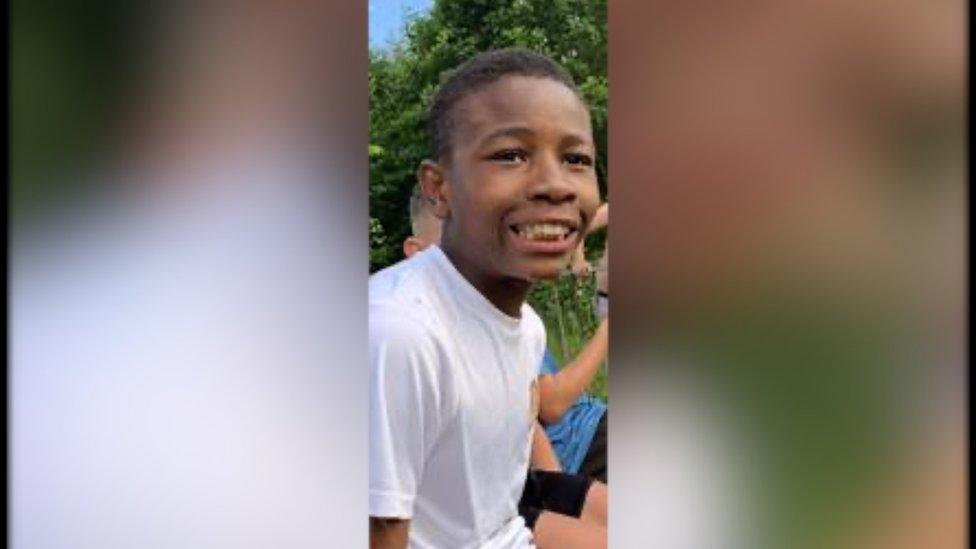
There was no prosecution after teenager Christopher Kapessa was pushed into a river
Ms Ali joined Black Lives Matter Cardiff after taking part in in its first protest.
She supports the manifesto's call for an inquiry into "institutional and systemic racism" in the police, citing the recent decision not to prosecute anyone over the death of black teenager Christopher Kapessa, and historical cases including the Cardiff Three miscarriage of justice over the killing of Lynette White.
PC Bharat Narbad, chair of South Wales Black Police Association, said he would be "lying if I said there was no racism in the police."
He told a BBC Radio Wales panel discussion on the issue: "Of course there is institutional racism - you have just got to look at the disproportionality of the number of people being stopped.
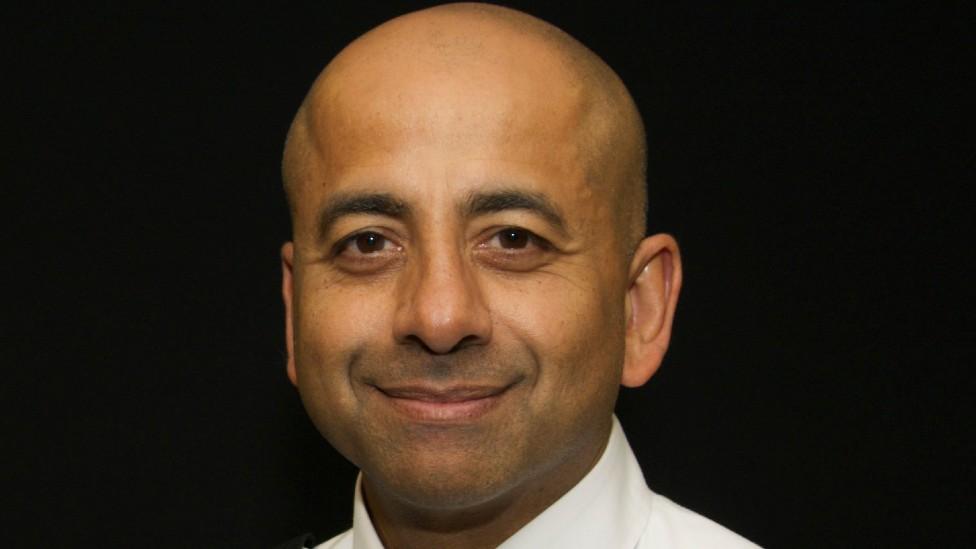
PC Bharat Narbad says change "needs to be faster" within the police
"You have a look at the disproportion of the number of police officers who are being investigated by the professional standards, you look at the disproportionate numbers of BAME officers and staff in higher ranks compared to lower ranks.
"If we want to police the community, we have got to look like the community."
He said a lot of efforts were being made to make changes but recent events needed to be a "catalyst for change".
"Change is slow and it needs to be faster."
'Fundamental shift'
Dafydd Llewellyn, Police and Crime Commissioner for Dyfed-Powys Police said there was more to be done both to increase BAME officer representation and understanding of diversity.
He said: "Within in the next 12 months in Dyfed Powys, we will see a greater population of BAME community employed by our organisation.
"I'd like to see a fundamental shift in wider society as well. I'd like to see black history taught in schools as part of our education process.
"I'd encourage people to report racism when it is experienced. I can assure people if you report racism, the police will respond."
- Published14 June 2020
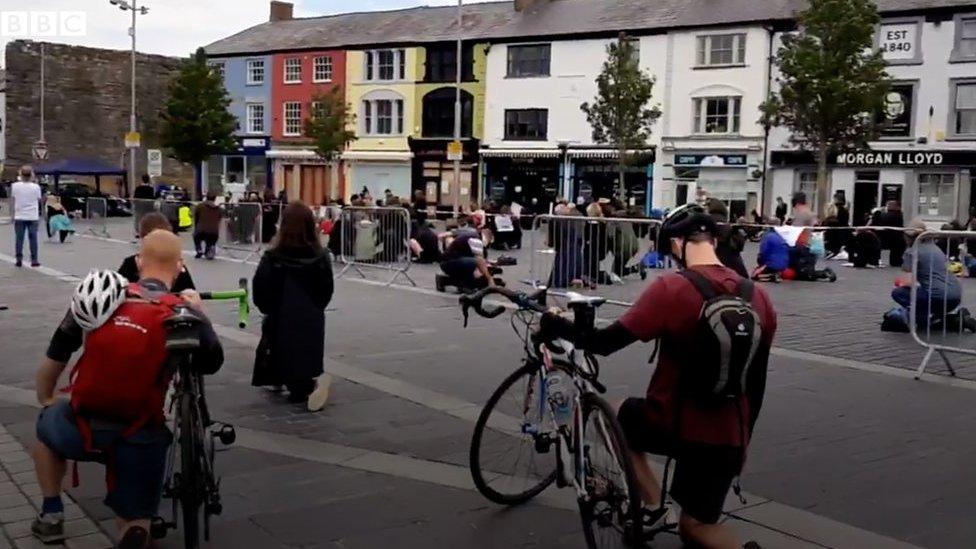
- Published6 June 2020
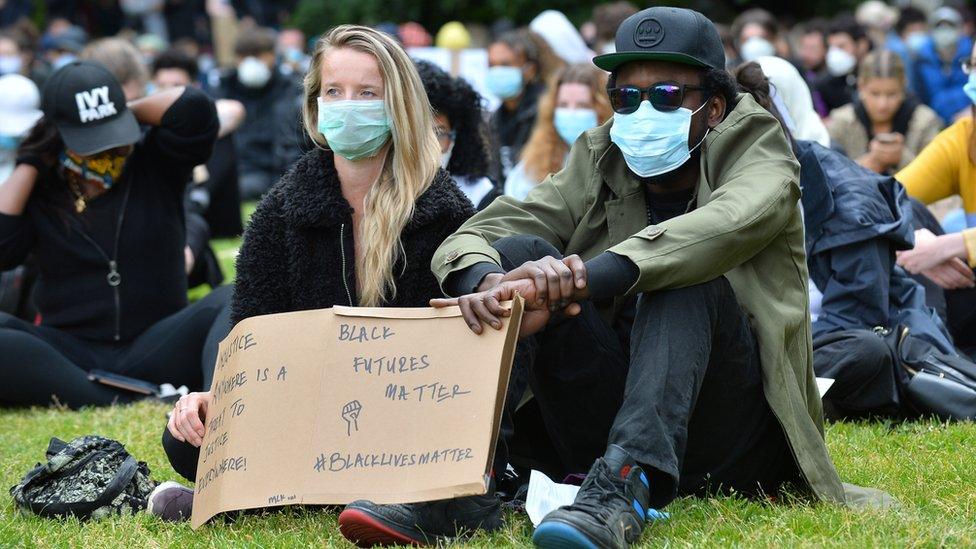
- Published5 June 2020
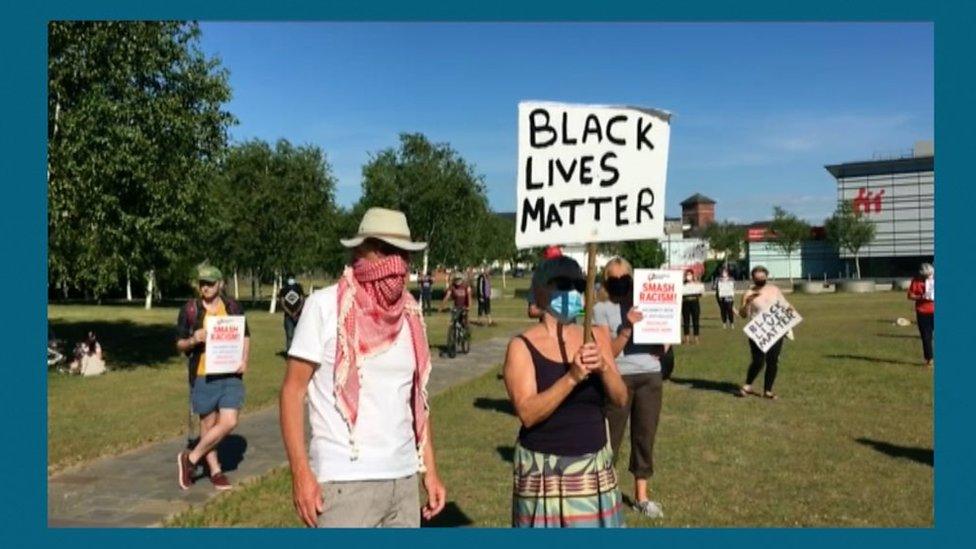
- Published7 June 2020
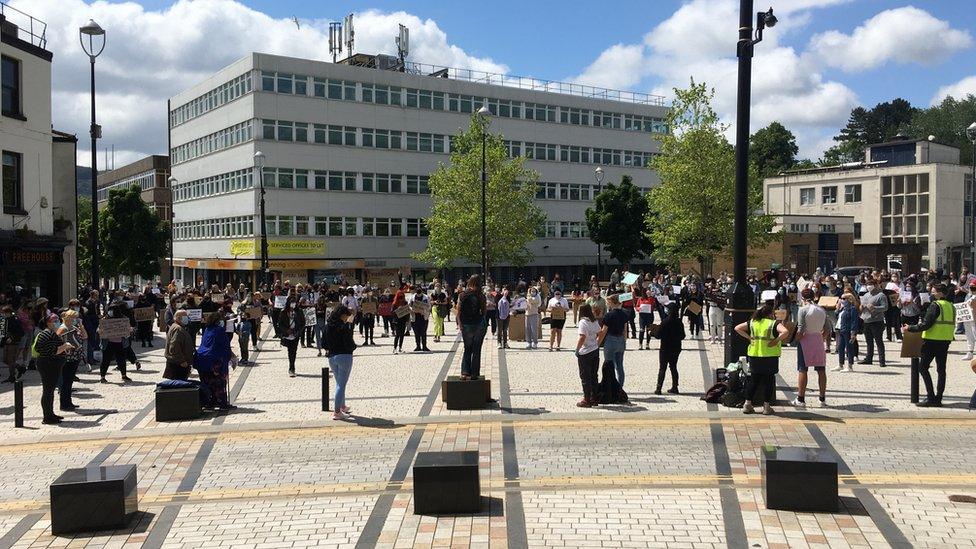
- Published7 June 2020
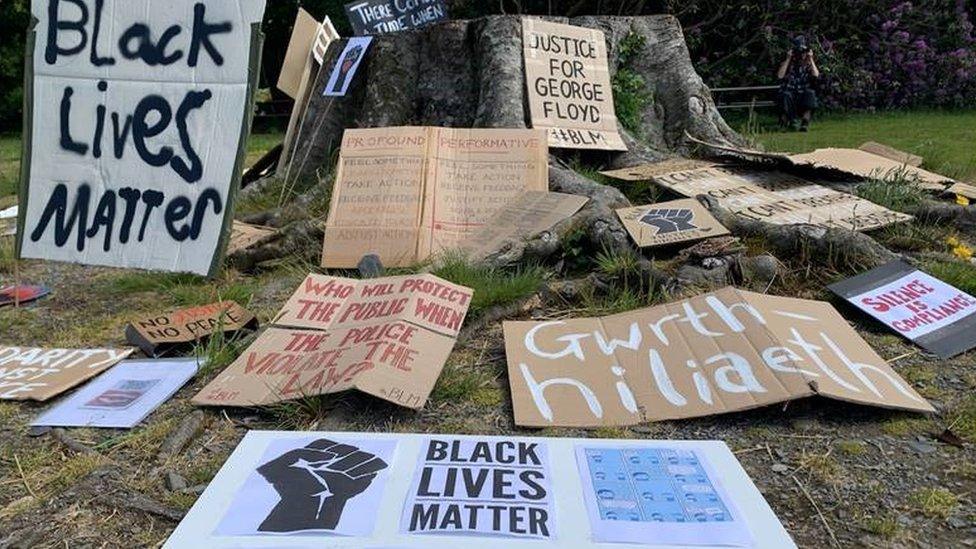
- Published20 July 2020
